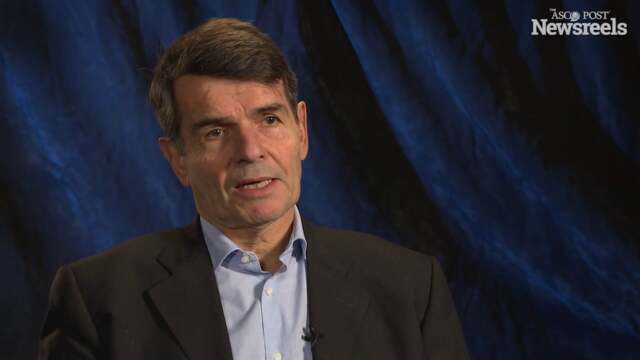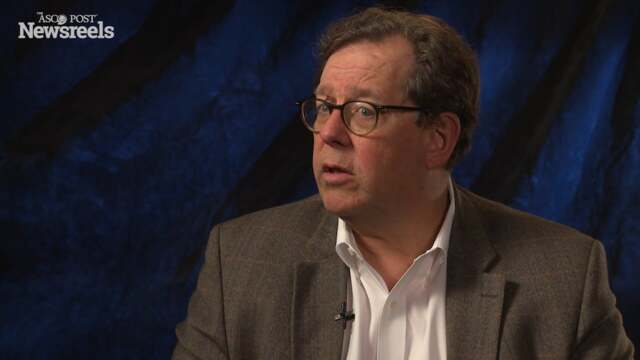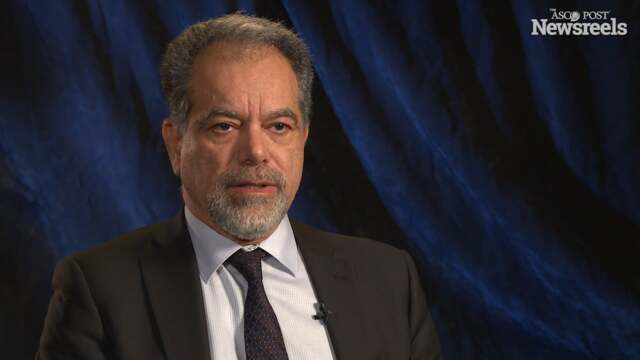Fred Saad, MD, on Prostate Cancer: The Year in Review
2016 Genitourinary Cancers Symposium
Fred Saad, MD, of the University of Montreal, summarizes his session on the latest treatment developments in prostate cancer, including the role of chemotherapy in hormone-sensitive disease. To see the French language version of this video, click here.
Bernard J. Escudier, MD
Bernard J. Escudier, MD, of the Institut Gustave Roussy, discusses in French a subgroup analyses of this phase III study of cabozantinib vs everolimus in patients with advanced renal cell carcinoma (Abstract 499).
A. Oliver Sartor, MD
A. Oliver Sartor, MD, of Tulane Cancer Center, discusses this study investigating circulating tumor cell characteristics to predict resistance to androgen deprivation therapies in patients with advanced prostate cancer (Abstract 163).
Fred Saad, MD
Fred Saad, MD, of the University of Montreal, summarizes in French his session on the latest treatment developments in prostate cancer, including the role of chemotherapy in hormone-sensitive disease.
Maha Hussain, MD
Maha Hussain, MD, of the University of Michigan, gives her expert perspective on changes in the treatment of hormone-naive disease.
David P. Dearnaley, MD
David P. Dearnaley, MD, of The Royal Marsden NHS Foundation Trust, discusses the comparison, in this study, of hypofractionated high-dose IMRT schedules for prostate cancer (Abstract 2).





